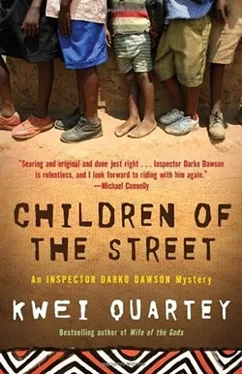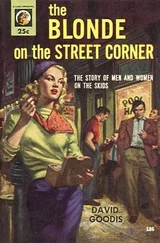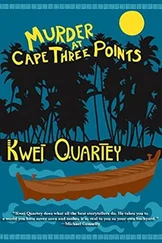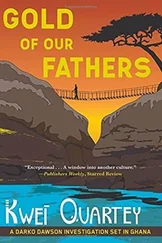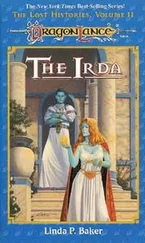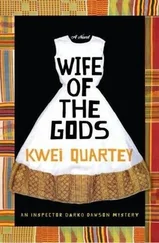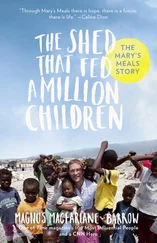“Come along, you two,” Dawson called out.
With the two boys in the backseat, Dawson was preparing to move the car into traffic when he realized he had a text message. It said:
Good news. Commitment from Dr. Gyan to make your boy whole. Whatever you can afford.
Call me. Dr. Biney
“Thank you, Jesus,” Dawson said.
“What is it?” Christine asked.
He passed the phone to her. She read the message and let out a small shriek, throwing herself at Dawson and holding him tight. Choking with emotion, they said nothing as they stayed together in a long embrace.
Behind them, Sly shot Hosiah a puzzled look.
“They’re like that sometimes,” Hosiah explained. “You just have to be patient and wait for them to stop.”
“Oh, okay,” Sly said. It was fine with him.
First, I must express my deepest gratitude for the friendship and professional advice of Detective Lance Corporal Frank A. Boasiako of the Criminal Investigations Department (CID) in Accra. Meeting him was a result of a confluence of events that might even have been called providence. He is a treasure of information. Without him, many nuances and technicalities of the Ghana Police Service (GPS) could not have been detailed in this novel, not to mention the guidance and protection he provided as I explored the darkest recesses of nocturnal Accra. Any variations from reality should not be attributed to “incorrect information” from Frank but rather to the creative and editorial process in my writing of the story.
There are others at Ghana Police Service (GPS) headquarters I must also thank: my old friend Ken Yeboah, Director-General of GPS Legal Services, who helped me get in touch with the right people; Detective Deputy Superintendent of Police (DSP) Hanson Gove, who graciously allowed me to pick his brain while frequenting his office and the detectives’ room. Thanks also to DSP Solomon Ayawine, administrator of CID headquarters.
I’m very grateful to Joana Ofori of Street Academy in Accra for being so accommodating and helpful in setting up interviews and tours of some of the settings in this novel. Paul Avevor of Catholic Action for Street Children (CAS) in Accra coordinated my meeting with some of Accra’s street children, and I thank him and director Jos Van Dinther for allowing me access to their organization and for giving me a tour of its premises. Thanks also to Theodora and Michael, the fieldworkers I went with to the gathering places of the street kids in town, many of which are represented in this novel. The children I met at both CAS and Street Academy were terrific, including Ernestina Marbell, whom I’m honored and delighted to be able to support through school.
My thanks to Colorado-Ghana Children’s Fund’s Edwin and Linda Vanotoo, whom I met in Sekondi-Takoradi and who helped me get in touch with the children they sponsor through their organization, and thanks to Mark, their fieldworker, who showed me around.
My friend and former classmate Professor Nii Otu Nartey, CEO of the Korle Bu Teaching Hospital, was instrumental in securing a tour of the Department of Child Health, where the nursing staff was extremely accommodating, in particular Juliana Adu Danso and Deputy Director Rebecca Armah.
Thanks also to Thomas Frimpong for welcoming me to the Police Hospital Mortuary and to the forensic pathologist and staff.
I’m grateful to Ethelbert Tetteh at Korle Lagoon Ecological Restoration Project (KLERP), who gave me a wonderful tour of the facilities and explained the technical intricacies of the pump station.
Seth Aheto took me through the bowels of Nima to places I would never have discovered without his assistance.
Samuel A. Mensah, general manager of Citi-FM, was kind enough to give me a tour of his radio station.
Thanks also to Bernard, my driver, who took me north, south, east, and west, to and through both the toughest and the loveliest parts of Accra as well as to the lush Western Region.
Of course, none of the foregoing would have been relevant if I did not have a book to write and get published. Which would not have been possible without the advocacy of and guidance from the best literary agent in the world, Marly Rusoff.
I count my blessings every time I reflect that a great publisher, Random House, and the Random House Publishing Group’s wonderful trade paperback publisher, Jane von Mehren, have stuck with me in these challenging times when there is much upheaval in the publishing world and when nothing can be taken for granted.
An amazing amount of work goes into producing just one novel, and just like with a movie, the many talented people who bring it all together are often the unsung heroes. This time around, my editor was Jennifer Smith. An author in her own right, she is also a terrific editor with incisive perception, who, I might add, works with lightning speed-just the way I like it. Thank you, Jen, for seeing this through, and thanks also to my publicist Kristina Miller as well as the marketing team.
As with the first novel in the Darko Dawson series, Wife of the Gods , the production editor was Vincent La Scala. My gratitude to him, and a million thanks to skilled copy editor Susan M. S. Brown for her meticulous care with my manuscript. Thank goodness for copy editors!
Gloria Ampim, at the University of Ghana, was my cultural and ethnographic editor, and I’m grateful to have had the benefit of her guidance as she carefully reviewed the novel. Thank you, Laura McGough, Ph.D., at the School of Public Health, University of Ghana, for putting me in touch with her.
The proverbs quoted in this novel are taken from the book Three Thousand Six Hundred Ghanaian Proverbs from the Asante and Fante Language , compiled by J. G. Christaller, translated by Kofi Ron Lange.
Finally, I developed a deep respect for the industry and resilience of Accra’s street children themselves, who withstand levels of hardship and poverty that would break most of us living in the Western world.
(No emphasis is indicated for words whose syllables have little tonal difference.)
Agoo (ah-GO): requesting permission to enter, come through, or go past
Akpeteshie (ak-pet-eshee): homemade spirit, 40 to 50 percent alcohol by volume, produced by distilling palm wine or sugar cane juice
Ashawo (ah-sha-WO): sex worker, prostitute
Banku (bang-KOO): cooked fermented cornmeal and grated cassava
Basabasa (ba-sa-ba-sa): disorganized, chaotic
Bola (BOH-la): trash
Cedi (SEE-dee): the monetary unit of Ghana
Chaley (cha-LAY): familiar term for friend, similar to buddy, bro, dude
Chop bar: small eating establishment
CMB : Cocoa Marketing Board
Dabi (deh-BEE, dah-BEE): no (Twi, Ga)
ε te s ε n? (eh-tay-SEN): How are you? (Twi)
Ewurade (ay-wu-rah-DAY): God, as in the exclamation, “My God”
ε y ε (eh-YEH): fine (Twi, in response to ε te s ε n? )
Fufu (fu-FU): cassava, yam, or plantain pounded into a soft, glutinous mass and shaped into a smooth ball, usually an accompaniment to soup
Ga: language indigenous to the southeastern coastal region of Ghana in and around the capital, Accra; also, Ga people
Gari (ga-REE): Granular flour made from grated cassava
GPS: Ghana Police Service
Kayaye (KA-ya-yay): women from northern Ghana who make their living in Accra and other cities transporting goods on their heads when another means of transportation is unavailable. Also termed head porter . (Singular, kayayo )
Читать дальше
